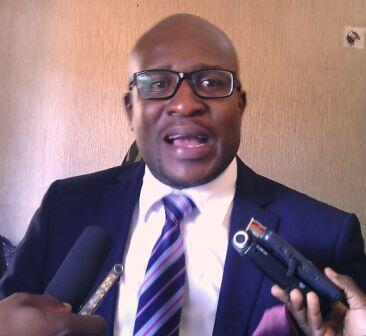
Infuriated by what they call a continued failure by public officials to complying with the Assets Act, Members of Parliament last week ganged up and summoned Assets Director Christopher Tukula for clarifications on a number of issues to do with his office.
The legislators through the Parliamentary Committee on Privileges argue that the Act has not been respected duly, something they claim can only be responsible for clearing the mist that has surrounded the whole Assets Declaration.
Among other things, the Committee on Privileges wanted Tukula to explain the issues surrounding the declaration of assets, liabilities and business interests by listed public officers.

The Assets Act which was passed by Parliament in 2014 has not been ascended to by a large number of cabinet ministers, members of the National Assembly and elected officials in local councils.
It has also remained cloudy on the whereabouts of the assets that the President and other public officers declared last year.
Initially, Office of Public Assets Declaration revealed that most public officers had managed to meet the December 31 2014 deadline to have their assets declared.
President Peter Mutharika, Members of Parliament, Ministers, Principal Secretaries, Magistrates are some people that had their assets declared.
According to Transparency International;
- An asset declaration is a person’s balance sheet and should cover assets, from all homes, valuables and financial portfolios, to liabilities, such as debts and mortgages, and all sources of income from directorships and investments to consulting contracts. It should also include gifts and sponsorship deals and any potential conflicts of interest such as unpaid employment contracts and participation in non-governmental organisations.
- The leadership of the three branches of government – executive, legislative and judiciary – and senior career civil servants should be required to file asset declarations before and after taking office as well as periodically (annually or every two years) during office.
- Ideally, the asset declaration records exact values, but some countries opt for ranges of value.
- The administration of an asset disclosure programme requires a monitoring and evaluation agency to collect and verify information and investigate, prosecute and sanction those who fail to comply.
”A well-defined asset declaration system is a strong tool to fight public sector corruption and abuse of power. Published information on a person’s assets allows civil society to hold leaders to account. If leaders are seen to live beyond their means, an asset declaration can be a starting point for investigations.” posted Transparency International on its website.
In Malawi, the Civil Society, opposition and activists have been calling for the same but it seems it remains eaten up by day light politics, with fears that most public duty bearers do not want their assets known to the masses they serve.















uyambe iweo tukula
uyambe iweo tukula
Assets Declaration MUST be applied on every Public Officer regardless of possition. The Civil Service & NGO/CSOs handle Public money & all must be held accountable cos evey Mk, $, € or £ comes in the name of the PEOPLE.
Chimaku pwetekani?